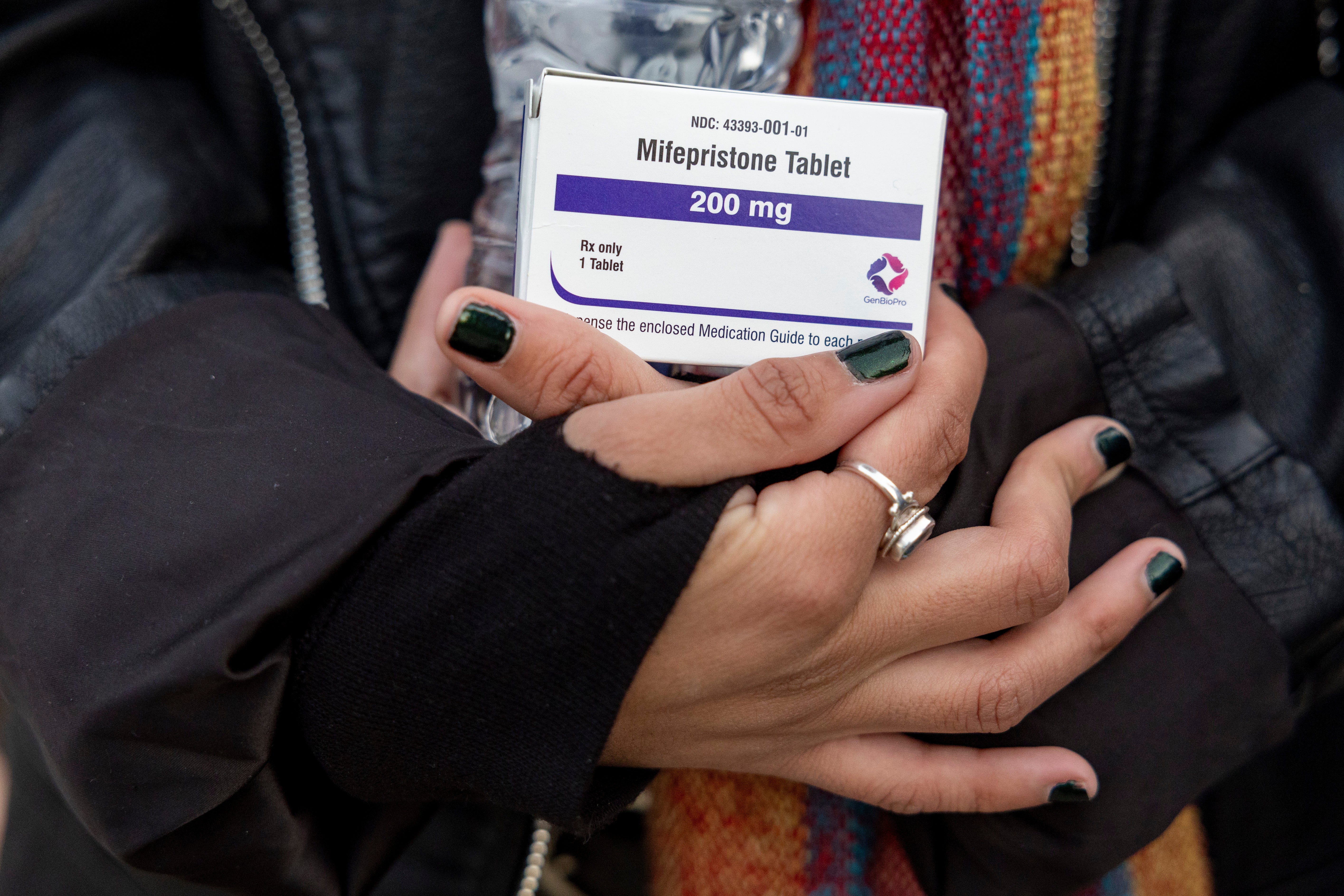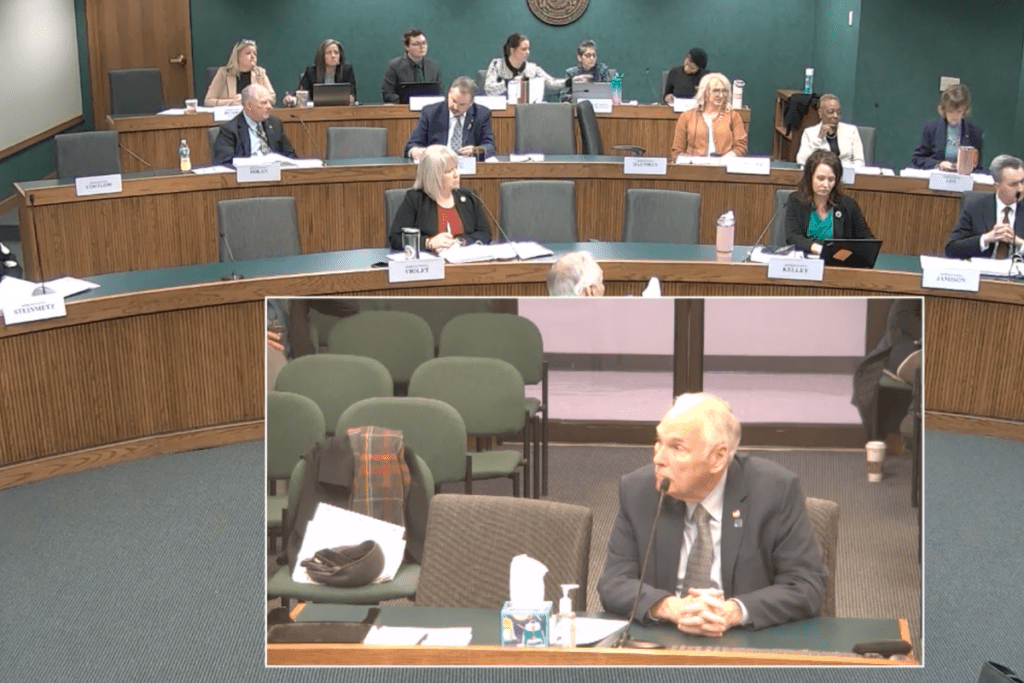Your support empowers impactful storytelling
From issues like reproductive rights to environmental concerns and the influence of Big Tech, The Independent is committed to delivering timely reporting on critical stories. We delve into financial inquiries involving major figures and produce impactful documentaries, such as ‘The A Word,’ which highlights the fight for reproductive rights among American women.
In this pivotal time for the United States, it’s vital to have journalists actively reporting from the ground. Your contributions enable us to continue covering all sides of these urgent narratives.
The Independent is a trusted source across the political spectrum in America. Unlike many reputable news outlets, we refuse to restrict access to our reporting through paywalls. Quality journalism should be accessible to all, supported by those who can afford to give.
Your support is essential.
A Republican lawmaker in Missouri has proposed new legislation aimed at establishing a “central registry” for pregnant individuals identified as “at risk” of seeking an abortion. The bill’s author, Republican state Rep. Phil Amato, likened the concept to an “e-Harmony for babies” designed to connect expecting mothers with adoptive families.
This proposed law would permit the state to exchange information from this registry with law enforcement agencies, including those beyond Missouri’s borders.
During a recent hearing, Amato largely directed inquiries about his “Save MO Babies Act” to Gerard Harms, an adoption attorney and the bill’s co-author.
Harms conveyed to the committee, “We envision a system similar to e-Harmony for babies – helping mothers who wish to place their children for adoption connect with potential adoptive parents.” He acknowledged that the language of the bill might not be perfectly articulated.
open image in gallery
Harms stated that participation in this registry would be voluntary and would adhere to all federal privacy laws regarding health information.
However, some state legislators and advocates for abortion rights expressed concerns over potential data privacy implications and what they characterize as government surveillance aimed at tracking individuals who might seek abortion services.
Mallory Schwarz, Executive Director of Abortion Action Missouri, remarked that this legislation echoes past attempts by state officials to monitor and control pregnant individuals, including a troubling admission from a former health department director about tracking the menstrual cycles of Planned Parenthood patients.
“The casual and alarming suggestions made regarding an ‘e-Harmony for babies’ for families to find children for adoption should raise significant concerns among everyone,” Schwarz stated.
“It is evident that no pregnant individual or child is protected from anti-abortion politicians who seek to exert control over our bodies and decisions regarding family planning,” she emphasized.
House Democrats in Missouri voiced their outrage over this proposed legislation via social media. “ARE YOU SERIOUS!?” read a post from the Missouri House Democratic Caucus. “Even conservative Missourians would likely find this notion appalling,” the post further remarked.
The Independent has sought comments from Rep. Amato regarding the legislation’s implications.
According to the proposed bill, the Division of Maternal and Child Resources within the Department of Social Services would be responsible for maintaining this registry, which would include information on expectant mothers at risk of seeking an abortion and on prospective adoptive parents who have undergone appropriate screenings and evaluations.

open image in gallery
The division has the authority to share records and findings with various child welfare agencies and law enforcement, including agencies beyond the state’s borders.
This legislation comes after a state court ruling that upheld reproductive rights access in Missouri, marking a significant win for advocates in the predominantly conservative state.
Last year, multiple states, including Missouri, witnessed voter-approved measures to enshrine abortion rights into their constitutions following the U.S. Supreme Court’s decision that removed federal protections for reproductive health. A recent ruling determined that the state’s near-total ban on abortion is unenforceable given the new constitutional amendment.
Additionally, a judge recently blocked certain burdensome requirements imposed on healthcare providers that were deemed unnecessary and discriminatory.
According to the Missouri Department of Health & Senior Services, over 3,000 abortions occurred in the state in 2022—significantly down from the more than 8,000 recorded in 1999.

open image in gallery
Abortion rights advocates remain on high alert concerning potential decisions from the Trump administration that could threaten access to reproductive care, particularly as anti-abortion figures fill significant government positions and a Republican-led Congress seeks to target protected abortion rights.
Recently, the president issued pardons for 23 anti-abortion activists who were convicted under federal law for obstructing reproductive health clinic access. U.S. Attorney General Pam Bondi has engaged with anti-abortion leaders who seek to challenge the legality of prescription abortion medications, while there have also been efforts to remove reproductive health information from public government resources.
The reinstatement of the “global gag rule” and threats to international aid have amplified disruptions to reproductive healthcare worldwide.
Nearly three years post the overturning of Roe v. Wade, almost half of the states in the U.S. impose outright bans or severe restrictions on abortion access.


